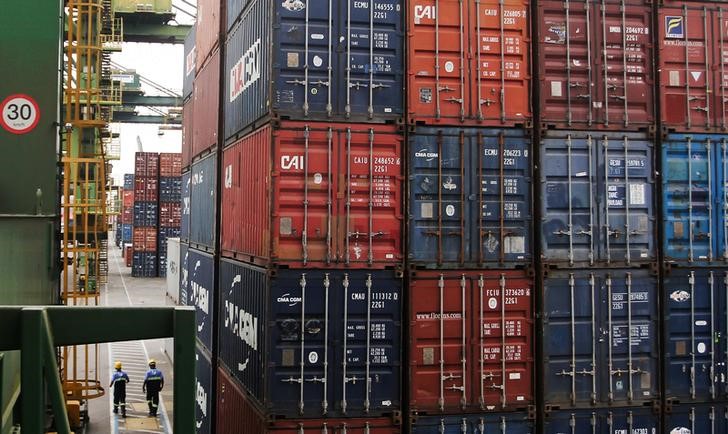
© Reuters.
USD/BRL
+0.01%
Add to/Remove from Watchlist
Add to Watchlist
Add Position
Position added successfully to:
Please name your holdings portfolio
Type:
BUY
SELL
Date:
Amount:
Price
Point Value:
Leverage:
1:1
1:10
1:25
1:50
1:100
1:200
1:400
1:500
1:1000
Commission:
Create New Watchlist
Create
Create a new holdings portfolio
Add
Create
+ Add another position
Close
By Bernardo Caram
BRASILIA (Reuters) – Chinese investments in Brazil tanked 78% in 2022 compared with the previous year, hitting their lowest in 13 years as funds committed to resource projects plummeted, the Brazil-China Business Council (CEBC) said on Tuesday.
China, Brazil’s largest trading partner, funneled $1.3 billion in direct investments into the country last year, the lowest level since 2009, according to a CEBC study. The performance contrasts with overall foreign direct investment (FDI) in Brazil in 2022, which skyrocketed by 95% to $90.6 billion, highest in a decade.
Last year, just 28% of announced Chinese projects worth $4.7 billion went ahead, the CEBC said. That compares poorly with 2021, when pledged investments of $5.9 billion were fully realized, bolstered by two oil projects worth nearly $5 billion.
That 2021 result established an unfavorable yardstick for comparison, said CEBC research head Tulio Cariello.
Some of the projects could have been held up by license approvals, Cariello said, “which may eventually postpone execution.”
Chinese mining firm Honbridge, for example, announced investments worth $2.1 billion that failed to proceed due to a pending environmental license.
While China-sourced funds channeled to Brazil witnessed a sharp decline, Chinese investments globally saw a modest uptick of 2.8% over the past year, growing to $116.8 billion.
Other factors affecting Chinese investments include the Ukraine conflict and the U.S.-China rivalry in Asia-Pacific, which prompted Beijing to prioritize “Belt and Road Initiative” investments that exclude Brazil, said Hsia Hua Sheng, an economist from the Sao Paulo Business Administration School of the Getulio Vargas Foundation (FGV-EAESP).
Leftist President Luiz Inacio Lula da Silva, who traveled to China in April, has been endeavoring to bolster ties with Beijing, but recent economic indicators from the Asian powerhouse have sparked concern that it might be losing its ability to sustain robust growth.
Source: Investing.com




























